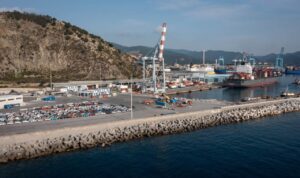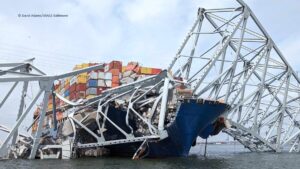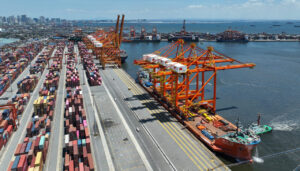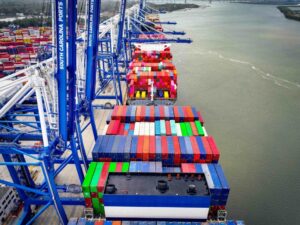The International Chamber of Shipping (ICS) has warned that lack of access for seafarers is leaving the global supply chain vulnerable, while also creating possible legal problems.
In a statement, the ICS said it will circulate a legal document highlighting concerns that vaccinations could soon become a compulsory requirement for work at sea because of reports that some states are insisting all crew be vaccinated as a pre-condition for entering ports.
However, reports estimate that developing nations will not achieve mass immunisation until 2024, with some 90% of people in 67 low-income countries standing little chance of vaccination in 2021.
The ICS said it calculates that 900,000 of the world’s seafarers are from developing nations.
This is creating a ‘perfect storm’ for shipowners, who may be forced to cancel voyages if crew members are not vaccinated, the body said and risks legal, financial and reputational damage by sailing with unvaccinated crews.
Delays into ports caused by unvaccinated crew would open up legal liabilities and costs for owners, which would not be recoverable from charterers.
Furthermore, while owners would be able to address the need for seafarer vaccines in new contracts, owners attempting to change existing contracts or asking crew to receive a specific vaccine requested by a port could open themselves up to legal liabilities.
The uncertainty comes at a crucial moment in the ongoing role of shipping in the global supply chain during the Covid-19 pandemic.
Shipping is expected to overtake aviation in the race to deliver vaccines around the world in the second half of 2021, in a distribution drive that is estimated to take four years.
ICS’s legal document noted that it is likely that a COVID-19 vaccination “will be required by most if not all states and therefore [it] would reasonably be considered to be a “necessary” vaccination.’
ICS secretary-general Guy Platten said: “Shipping companies are in an impossible position. They are stuck between a rock and a hard place, with little or no access to vaccines for their workforce, particularly from developing countries.
“We’re already seeing reports of states requiring proof of COVID-19 vaccination for seafarers. If our workers can’t pass through international borders, this will undoubtedly cause delays and disruptions in the supply chain. For a sector expected to help drive the global vaccination effort, this is totally unacceptable.”
“This is a key issue for shipping but could also have a significant impact across many sectors as international business recovers.”
Bud Darr, Executive Vice President, Maritime Policy and Government Affairs at MSC Group, added: “While we haven’t seen it yet, we’re definitely concerned that the lack of vaccinations will become an obstacle to the free movement of seafarers this year.
“Seafarers have already given us so much. Navigating quarantines, the suspension of flights routes and health restrictions that have kept them away from their family and friends. All to keep the world supplied with essential goods.
“The shipping industry needs to find creative solutions to the problem. In the short term this means getting seafarers vaccinations in their countries where there are established programmes and sufficient supplies of vaccines.
“In the long term it’s about exploring the idea of public-private partnerships. There may even be the opportunity, when the initial surge of need is met for national allocation, for manufacturers to provide vaccinations directly to shipowners to allocate/administer to these key workers.”









